Best movies like Tannhäuser and the Singers' Contest at Wartburg Castle
A unique, carefully handpicked, selection of the best movies like Tannhäuser and the Singers' Contest at Wartburg Castle Starring Gwyneth Jones, Spas Wenkoff, Bernd Weikl, Hans Sotin, and more. If you liked Tannhäuser and the Singers' Contest at Wartburg Castle then you may also like: The Nomi Song, Carnegie Hall, Pope Joan, The Great Caruso, The Mikado and many more popular movies featured on this list. You can further filter the list even more or get a random selection from the list of similar movies, to make your selection even easier.
TANNHÄUSER UND DER SÄNGERKRIEG AUF WARTBURG is a grand opera by Richard Wagner in three acts. After experiencing boundless sensuality and freedom with the fun-loving Venus (soprano), the singer Tannhäuser (Tenor) finds it impossible to conform to the cultured setting of his betrothed Elizabeth (soprano), who loves him. During a singing contest, Tannhäuser describes the affair with Venus as the ultimate love experience and because of that, he is cast out from the established society. Thanks to Elizabeth's intervention, he is allowed to undertake a pilgrimage to the Pope to ask for the Holy Father's pardon. If the Pope accepts to forgive him, he would be allowed to take back his place in society. Tannhäuser accepts. But fate will not allow him to meet with his beloved Elizabeth again in this life. This is a recording of the legendary staging by Götz Friedrich for the 1978 Bayreuth Festival conducted by Sir Colin Davis.
You may filter the list of movies on this page for a more refined, personalized selection of movies.
Still not sure what to watch click the recommend buttun below to get a movie recommendation selected from all the movies on this list
Carnegie Hall
A young Irishwoman comes to the United States to live and work with her mother as a cleaning lady at Carnegie Hall. She becomes attached to the place as the people she meets there gradually shape her life. The film also includes a variety of performances from some of the foremost musical artists of the times: conductors Bruno Walter & Leopold Stokowski, solists Arthur Rubinstein & Jascha Haifetz, singers Lily Pons & Jan Peerce and bandleader Vaughn Monroe among many others.
The Great Caruso
Loosely traces the life of tenor Enrico Caruso (1873-1921). He loves Musetta, in his home town of Naples, and then Dorothy, the daughter of one of the Metropolitan Opera's patrons. Caruso is unacceptable to both women's fathers: to one, because he sings; to Dorothy's, because he is a peasant. To New York patricians, Caruso is short, barrel chested, loud, emotional, unrefined. Their appreciation comes slowly. The film depicts Caruso's lament that "the man does not have the voice, the voice has the man": he cannot be places he wants to be, because he must be elsewhere singing, including the day his mother dies. Throughout, Mario Lanza and stars from the Met sing.
The Mikado
In a small Japanese town, Ko-Ko is appointed to the unenviable position of executioner. Knowing he must successfully perform before the appearance of the Mikado in a month's time, Ko-Ko finds a suitable victim in Nanki-Poo, who is distraught over his unrequited love for the maiden Yum-Yum. Nanki-Poo agrees to sacrifice his life if he is allowed to spend his remaining days with Yum-Yum, who is betrothed to Ko-Ko.
The Tales of Hoffmann
A young poet named Hoffman broods over his failed romances. First, his affair with the beautiful Olympia is shattered when he realizes that she is really a mechanical woman designed by a scientist. Next, he believes that a striking prostitute loves him, only to find out she was hired to fake her affections by the dastardly Dapertutto. Lastly, a magic spell claims the life of his final lover.
That Midnight Kiss
Opera singer Prudence Budell, overhears truck driver Johnny Donnetti singing opera, and persuades her opera company to give him a chance in her new opera. They fall in love, but on meeting his colleague Mary while visiting Johnny's work, Prudence becomes convinced Johnny is in love with her.
Woman Times Seven
Seven mini-stories of adultery: "Funeral Possession," a wayward widow at her husband's funeral; "Amateur Night," angry wife becomes streetwalker out of revenge; "Two Against One," seemingly prudish girl turns out otherwise; "Super Simone," wife vainly attempts to divert her over-engrossed writer husband; "At the Opera," a battle over a supposedly exclusive dress; "Suicides," a death pact; "Snow," would-be suitor is actually a private detective hired by jealous husband.
The Singing Nun
Belgian nun Sister Ann is sent to another order where she's at first committed to helping troubled souls, like Nichole and little Dominic. When Father Clementi hears Sister Ann's uplifting singing style, he takes her to a talent contest. Sister Ann is signed to a record deal and everyone is listening to her lighthearted songs. She is unprepared for her newfound fame (like appearing on The Ed Sullivan Show) and unwanted side effects, including a wrongful attraction to an old friend.
One Love
Kassa a free-wheelin rasta man, falls for a straight laced gospel singer Serena, when they both meet as they enter a music contest. Serena's father the pastor forbids her to see him and wants her to marry one of his church members. Meanwhile the record boss organizing the contest, tries to get Kassa's band to sign to his label on his terms not theirs. By using heavy tactics, he pushes the band to fight back.
Pavilion of Women
With World War 2 looming, a prominent family in China must confront the contrasting ideas of traditionalism, communism and Western thinking, while dealing with the most important ideal of all: love and its meaning in society.
Frau Venus und ihr Teufel
Hans Müller finds himself on a trip in Thüringen, accompanied by his loving female friend, Moritz. Hans doesn't understand much about trust, which constantly leads to problems between the two of them. During one of their fights, Lady Venus intervenes and sends the young man back to the Middle Ages - so he can learn the true meaning of love. Disguised as Tannhäuser, he has to stand his ground against a horde of minstrels. At a singing competition, he blunders, without the support of Moritz, who had also been thrown back into the 13th century. And with the help of Frau Venus, his adventure will surely turn out even worse...
Hänsel und Gretel
Engelbert Humperdinck's beloved musical fairy tale HÄNSEL UND GRETEL is brought to life by Sir Georg Solti and an illustrious cast - all part of a shimmering production that continues to enchant audiences of all ages.
Der Rosenkavalier
The legendary soprano Elisabeth Schwarzkopf stars in this acclaimed film of Richard Strauss' delightful opera, Der Rosenkavalier. This Salzburg Festival production of Strauss' great work toured the world, and this filmed version was hailed by The New York Times as "Superb." Schwarzkopf performs her signature role as Princess von Werdenberg, an aging beauty involved with a younger man, Octavian. But when Octavian agrees to assist Baron Ochs by delivering the Baron's proposal of marriage to the beautiful young Sophie, the messenger and bride-to-be fall in love with each other!
The Righteous Babes
The Righteous Babes shows how the self-affirmative music of young women is renewing the 90's feminism. In the film, audience can experience feminism not in the library but in the rock concert hall. The film shows interviews and performances. In addition, controversial feminists along with American and British women journalists share their views on pop culture.
Kampf auf der Bosporus-Brücke - Die Türkei und der gescheiterte Putschversuch
The night of July 15, 2016 changed the history of Turkey. On that day there were coordinated attacks by parts of the Turkish army, among others in Istanbul. The aim of the military: a coup against the government. The decisive confrontation occurred on the Bosporus Bridge. While President Erdogan was still on vacation, live at TV he called on the people who were devoted to him to stand against the military. As an enemy for the masses, he presented his adversary Fethullah Gülen, whom he branded as the coup leader. He also urged the imams of the country's mosques to condition the population to resist. And so it happens that at night thousands of agitated people take to the streets to oppose the armed insurgents. The death toll was high. 352 people died across Turkey during the attempted coup. The consequences are even more serious: Erdogan used this gift, as he called it himself, to undermine democracy, to arrange mass arrests of dissidents and to transform Turkey into a dictatorship.
Heil Hitler und Alaaf! Karneval in der NS-Zeit
The film is the documentary reappraisal of the carnival taboo topic par excellence, "Carnival under the swastika". First of all: He existed! See numerous historical recordings of Rose Monday parades and meetings of the 1930s.
Falling for a Dancer
Romantic drama set in rural Ireland of the 1930s. The story begins when 19-year-old Elizabeth has a brief fling with an actor and falls pregnant. Community pressure forces her to marry a dull middle-aged man, but maybe there is hope on the horizon.
Auf den Spuren der Vergangenheit
Many years ago Thaddeus Hartington quarreled with his son David. Now he is seriously ill, but only wants to undergo a risky heart surgery, if he had the opportunity to reconcile with David. His dedicated doctor Kate sets out to find the missing person. She finds him in a small south English town, where he lives with his son Jeffrey. With charm and openness, Kate manages to win David's trust and eventually his heart. However, when he learns that Kate is on his father's behalf, this puts the young love to the test.
Das Rheingold
From the gorgeous scene deep in the river Rhine that opens the opera, up to the magic Rainbow Bridge that appears at the end, leading to a glistening Valhalla, Otto Schenk’s production captures the scenic world of Wagner’s Ring as brilliantly as James Levine and the Met orchestra capture the musical world. The cast is incomporable: an astounding James Morris as the young god Wotan, the great Christa Ludwig as his wife Fricka, incandescent Siegfried Jerusalem as Loge, the wily god of fire, and Ekkehard Wlaschiha as a complex Alberich.
Die Walküre
The gorgeous and evocative Otto Schenk/Günther Schneider-Siemssen production continues with this second opera in Wagner’s Ring cycle. Hildegard Behrens brings deep empathy to Brünnhilde, the favorite daughter of the god Wotan (James Morris) who nevertheless defies him. Morris’s portrayal of Wotan is deservedly legendary, as is Christa Ludwig, as Fricka. Jessye Norman and Gary Lakes are Sieglinde and Siegmund, and Kurt Moll is the threatening Hunding. James Levine and the Met orchestra provide astonishing color and drama. (Performed April 8, 1989)
Götterdämmerung
The stupendous climax to Wagner’s four-part Ring cycle is brilliantly realized by the Otto Schenk/Günther Schneider-Siemssen production and byJames Levine’s monumental conducting. The Met orchestra, chorus, and an all-star cast make this Götterdämmerung one that truly rises to the occasion. Hildegard Behrens’s Brünnhilde must be experienced to be believed, as does Matti Salminen’s richly sung, domineering Hagen. At the center of the drama is Siegfried Jerusalem as Siegfried, who does not realize he has been drawn into a plot of betrayal until it is too late. Christa Ludwig is magnetic as Waltraute and Ekkehard Wlaschiha is a compelling Alberich.
Tannhäuser
A romantic opera in three acts with music and libretto by Richard Wagner, performed by the Orchestra of the Teatro di San Carlo. The original title, Tannhauser und der Sangerkrieg auf Wartburg, reveals the real nature of the opera, born by a fusion of two traditional sagas and dedicated to the dualism of spirituality and sensuality and the possibility of redemption through love. Composed between 1843 and 1845, Tannhauser has a tormented musical theme, made up of constant variations. It debuted in Dresden in 1845 when Wagner was just over 30.
Tristan und Isolde
The Bayreuth Festival Opera House mounted this production of Richard Wagner's 1865 opera Tristan und Isolde as part of the Bayreuther Festspiele. Staged by Heiner Müller, it stars Siegfried Jerusalem, Waltraud Meier, Poul Elming and Uta Priew, and features musical accompaniment by The Orchestra and Chorus of the Bayreuther Festspiele.
Tristan und Isolde
Inspired by Wagner’s own tortured affair with the wife of his patron, this searing masterwork is based on Arthurian legend and tells of an illicit romance between a Breton nobleman and the Irish princess betrothed to his uncle and king. The composer’s larger-than-life sensibilities are on full display throughout the score: Along with intoxicating orchestral music that surges in tandem with the couple’s burgeoning passion and a chord left symbolically unresolved until the last moments of the opera, the opera also features one of the repertory’s most soaring and ecstatic final climaxes, as Isolde surrenders to a love so powerful that she transcends life itself.
Wagner: Das Rheingold
This 1978 studio production of the prologue to Wagner's masterpiece is the only segment of the famous Salzburg Festival/Metropolitan Opera productions, first seen in the 1960s, that made it to film. Based on one of those original productions, Georges Wakhevitch produced stage settings and transformations that supported Karajan's concept with every possible means. Herbert Von Karajan's staging is in the epic style of another age, emphasizing the dignity of the gods rather than their all too human failings. With the singers - foremost among them Peter Schreier - Karajan had an ensemble that fully conformed to his intentions.
Rigoletto
Live recording at Royal Opera House, 22 September, 2001. Television live relay. In one of the Royal Opera’s most celebrated and popular productions, director David McVicar mixes lavish historical costumes and dark stylized settings to highlight the savagery and excitement of Verdi’s tale of misdirected revenge. Paolo Gavanelli is vocally and theatrically electrifying as the hunchback anti-hero, acclaimed soprano Christine Schäfer is his doomed daughter, and superstar tenor Marcelo Alvarez is her fickle lover. With superb playing from the Orchestra of the Royal Opera House, it adds up to a thrilling Rigoletto for both opera aficionados and newcomers.
Wagner: Tristan und Isolde
Glyndebourne's celebrated production of Nikolaus Lehnhoff's Tristan und Isolde is a supremely intelligent achievement; gravely beautiful, haunting and meditative, it is deeply reflective rather than visceral, fortified by Roland Aeschlimann's stunningly effective set, a womb-like space through which the protagonists move like gods. Conductor Jiří Bělohlávek mirrors Lehnhoff's approach in his sophisticated plumbing of the score's depths, with every shift in texture carefully laid bare by an inspired London Philharmonic Orchestra. Nina Stemme's Isolde and Robert Gambill's Tristan, both gloriously lyrical, are matched by superb performances from René Pape as the betrayed and vulnerable King Marke and Bo Skovhus as Kurwenal, deeply touching in his helpless devotion to Tristan. This High Definition recording of a production of uncommon intimacy reveals the opera's music and drama in a new light.
Wagner: Lohengrin
Wagner's Lohengrin is the mythical tale of the mysterious Knight of the Grail, who appears to defend the princess Elsa - wrongly accused of the murder of her brother. Highlights of Wagner's most lyrical score include the famous Wedding March, which accompanies the marriage of Lohengrin and Elsa. Superstar tenor Jonas Kaufmann ("currently the hottest tenor in opera" - The New York Times) makes his role debut in this performance from 2009 and filmed in Munich. He is joined by German soprano Anja Harteros - a former winner of the prestigious Cardiff Singer Of The World competition.
Wagner: Das Rheingold
Robert Lepage’s landmark staging of Wagner’s Der Ring des Nibelungen, unveiled over the course of the 2010–11 and 2011–12 seasons, was the first new Met production of the complete cycle in more than 20 years. Combining state-of-the-art technology with traditional storytelling, it brings Wagner’s vision into the 21st century. In this first part of the epic, the theft of the Rhinegold treasure sets in motion the course of events that will change the world and end the rule of the gods. Met Music Director James Levine conducts a cast of some of the greatest Wagnerian singers of our time, including Bryn Terfel as Wotan, Stephanie Blythe as Fricka, and Eric Owens as Alberich.
Die Tänzerin und der Gangster - Liebe auf Umwegen
Toni (Sarah Engels) falls in love with Tom, but he has a dark secret.


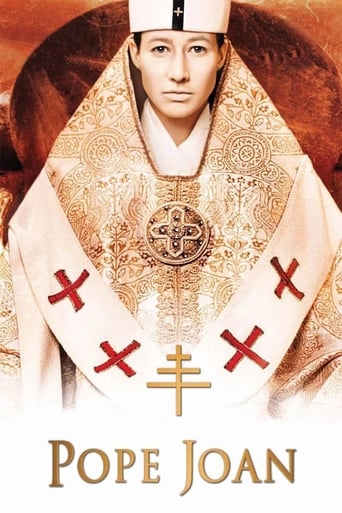

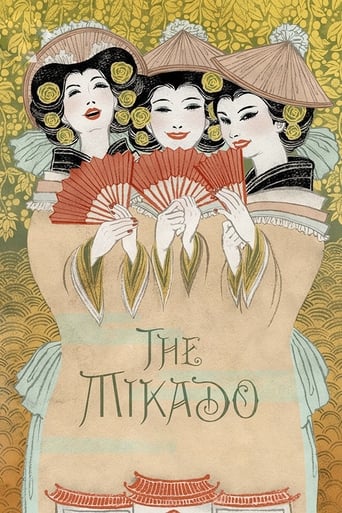















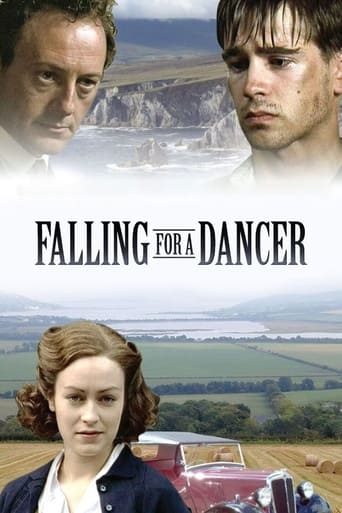














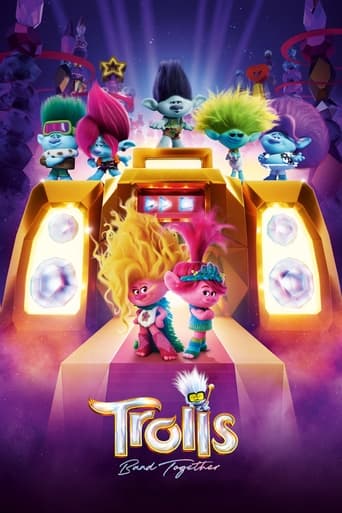
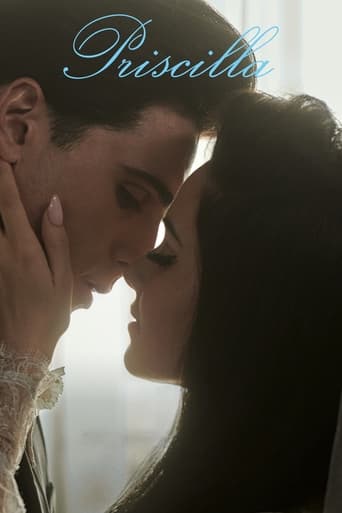

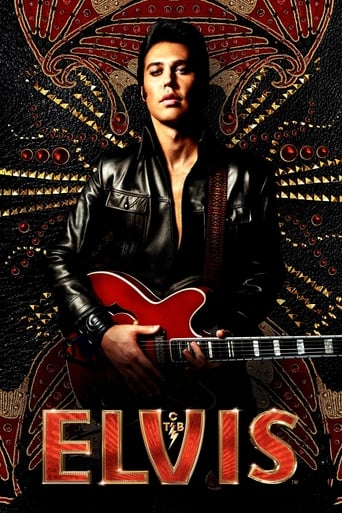
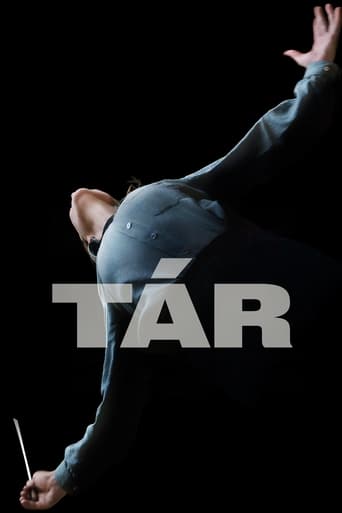
The Nomi Song
Looks like an alien, sings like a diva - Klaus Nomi was one of the 1980s' most profoundly bizarre characters to emerge through rock music: a counter tenor who sang pop music like opera and brought opera to club audiences and made them like it. The Nomi Song is a film about fame, death, friendship, betrayal, opera, and the greatest New Wave rock star that never was!